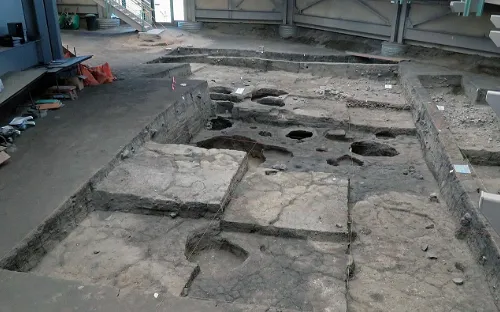Mitchell Prehistoric Indian Village and its collection
The Mitchell Site, also known as 39DV2, is a significant archaeological location in Mitchell, Davison County, South Dakota. It was recognized as a National Historic Landmark in 1964, highlighting its importance in the history and archaeology of the region.
Exploring the Mitchell Prehistoric Indian Village
The Mitchell Prehistoric Indian Village, housed under a dome, is managed by a nonprofit organization and is open to the public. Visitors have the opportunity to observe archaeologists at work in the Thomsen Center Archeodome, uncovering artifacts from the site. The Boehnen Memorial Museum, located on the site, showcases a reconstructed lodge and a variety of artifacts discovered at the location.
Life in the Prehistoric Village
The Mitchell Site was once a village composed of lodges, surrounded by a ditch and timber palisade. The inhabitants of this village sourced their food from a variety of places. The discovery of food processing tools and carbonized seeds at the site suggests that they cultivated much of their own food. Artifacts such as hoes and squash knives further indicate that they were farmers. The presence of various types of carbonized seeds and corn cobs reveals that they grew crops like corn, beans, squash, sunflowers, and tobacco.
History & Anthropology Archaeology Ethnology Historic house




